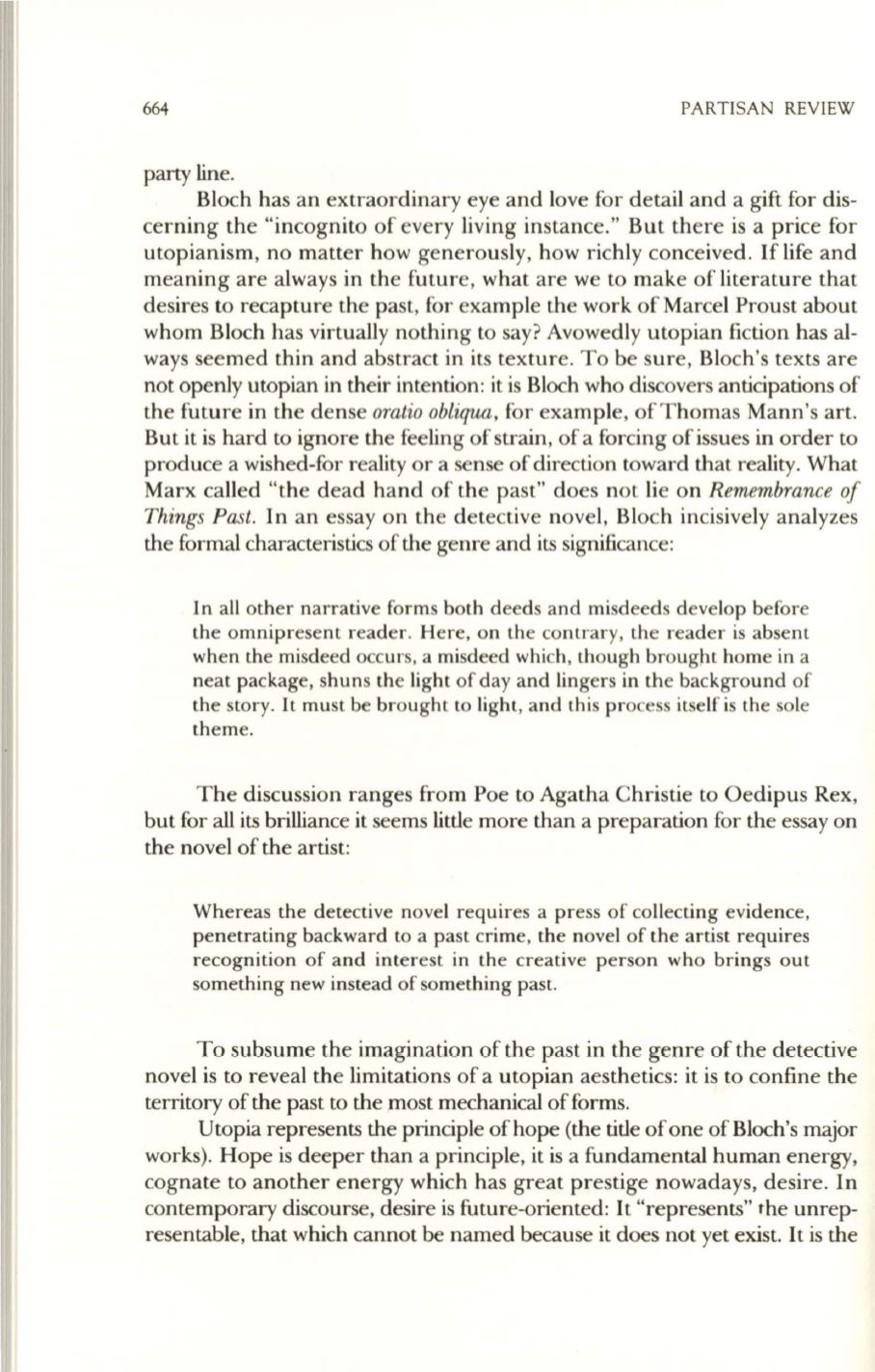
664
PARTISAN REVIEW
party line.
Bloch has an extraordinary eye and love for detail and a gift for dis–
cerning the "incognito of every living instance." But there is a price for
utopianism, no matter how generously, how richly conceived. If life and
meaning are always in the future, what are we to make of literature that
desires to recapture the past, for example the work of Marcel Proust about
whom Bloch has virtually nothing to say? Avowedly utopian fiction has al–
ways seemed thin and abstract in its texture. To be sure, Bloch's texts are
not openly utopian in their intention: it is Bloch who discovers anticipations of
the future in the dense
oratio obliqua,
for example, ofThomas Mann's art.
But it is hard to ignore the feeling of strain, of a forcing of issues in order to
produce a wished-for reality or a sense of direction toward that reality. What
Marx called "the dead hand of the past" does not lie on
Remembrance of
Things Past.
In an essay on the detective novel, Bloch incisively analyzes
the formal characteristics of the genre and its significance:
In all other narrative forms both deeds and misdeeds develop before
the omnipresent reader. Here, on the contrary, the reader is absent
when the misdeed occurs, a misdeed which, though broug/1t home in a
neat package, shuns the light of day and lingers in the background of
the story.
It
must be brought to light, and this process itself is the sole
theme.
The discussion ranges from Poe to Agatha Christie to Oedipus Rex,
but for all its brilliance it seems little more than a preparation for the essay on
the novel of the artist:
Whereas the detective novel requires a press of collecting evidence,
penetrating backward to a past crime, the novel of the artist requires
recognition of and interest in the creative person who brings out
something new instead of something past.
To subsume the imagination of the past in the genre of the detective
novel is to reveal the limitations of a utopian aesthetics: it is to confine the
territory of the past to the most mechanical of forms.
Utopia represents the principle of hope (the title ofone of Bloch's major
works). Hope is deeper than a principle, it is a fundamental human energy,
cognate to another energy which has great prestige nowadays, desire. In
contemporary discourse, desire is future-oriented: It "represents" the unrep–
resentable, that which cannot
be
named because it does not yet exist. It is the


